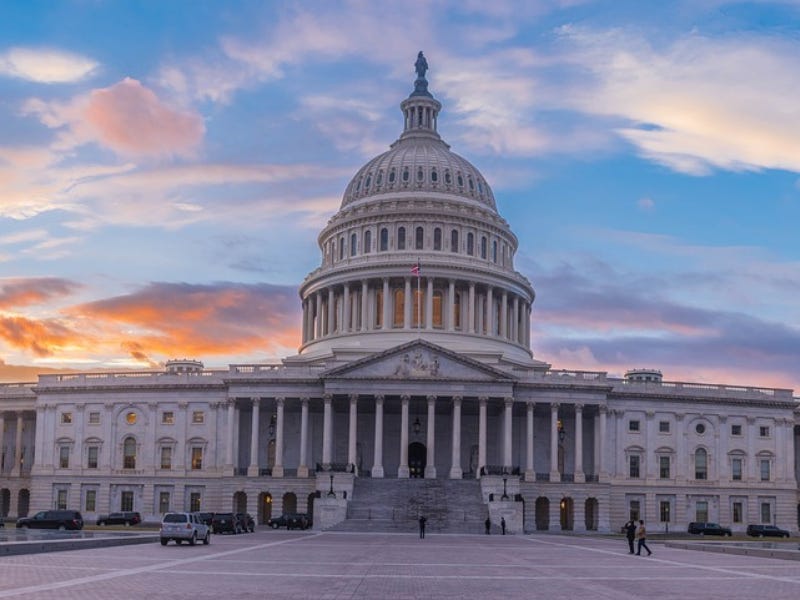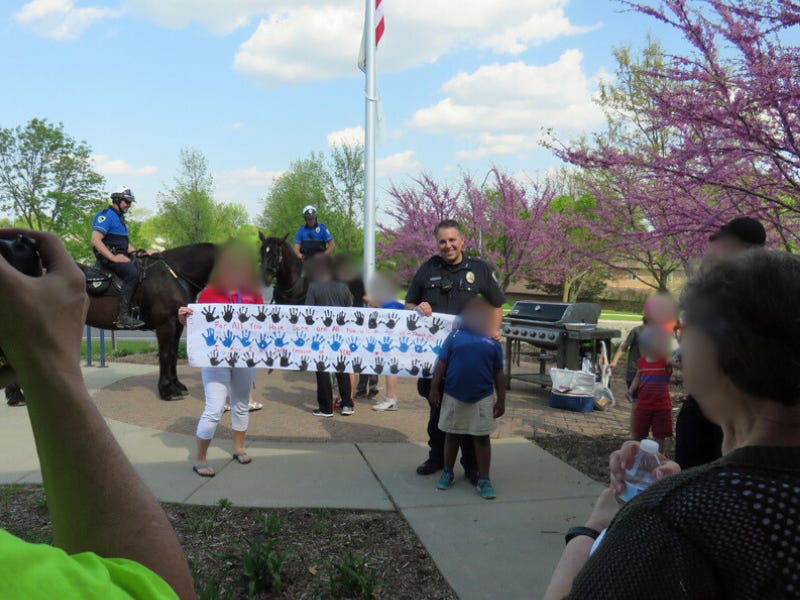A Piece of the Puzzle: Why Police and Public Safety Bills Aren't Progressing As They Should
Plus updates, news, a call for female officers, and some thoughts for National Police Week
It’s not just the citizenry who think Congress is dysfunctional. In their State of the Congress 2024 report, the non-partisan, nonprofit Congressional Management Foundation revealed that only a small percentage of senior congressional staffers believe that "congress is currently functioning as a democratic legislature should.”
Part of this can be attributed to the current level of incivility and lack of bipartisanship on full display in both Congress and the nation as a whole. A paltry 1% of respondents surveyed stated they were “very satisfied" with the current state of civility, while 0% were “very satisfied” with the level of bipartisanship.
We’ve become a nation that has abandoned meaningful discourse in exchange for performance. Look at me! It’s become more a game of Gotcha! than about crafting solutions.
While Congress should, of course, be setting an example for the nation, the citizenry is also culpable.
Social media has exacerbated, or perhaps helped create, this dynamic. These platforms have made it easier for anyone to feign advocacy and virtue, to promote harmful ideology without it being challenged, to incite (including for profit), and to anonymously degrade others.
It should come as no surprise, given this dynamic, why we’re having difficulty passing meaningful police and public safety bills. Legislation should, of course, never be rushed through; it should be mindfully crafted and thoughtfully debated. That’s not what’s happening now, however.
I suspect that like me, you’re weary of the egos and performances. You and I see the trouble our nation is in and we want solutions. Let’s work together towards this goal.
As I’ve mentioned in previous posts, law enforcement has gained a powerful new ally with Independent Women’s Network and Independent Women’s Forum. We’re launching our new police and public safety action center during National Police Week (which starts Sunday, May 12th this year).
This launch is a foundation, one we plan to build upon. One feature we’d like to include after the launch are stories of female police officers. (Male officers: We love you, too!)
The conundrum here is that it’s difficult to find officers currently on the job willing to speak freely, especially in this environment. I’m thinking that we’ll have to interview women who have recently retired or who have considered policing as a profession but were turned off by the negative landscape.
If this description fits you or someone you know and you’re willing to be interviewed, please reach out to me at fortheblue@substack.com.
Legislative Updates!
The Protect and Serve Act (H.R. 743)
H.R. 743 received just one new co-sponsor this past week: Rep. Victoria Spartz (IN-5). Given that Rep. Spartz is a Republican member of the House Judiciary Committee where the bill is stalled, however, her support of this bill is especially heartening.
Please contact your congressperson, urging support of this critical bill.
Louisiana Legislature: Approaching a Police Officer Within 25 Feet Would Become a Crime
Louisiana Reps. Bryan Fontenot (055) and Mike Johnson (027) introduced H.B. 173 in February, which would make it a misdemeanor to be within 25 feet of a police officer who is performing lawful duties. It would apply only in cases where the officer has clearly instructed the observer to retreat. Non-compliance could result in a maximum $500 fine and a 60-day jail sentence.
Given the proliferation of phone cameras coupled with a growing disrespect for boundaries, this bill is necessary. When an offer is distracted, an altercation can easily escalate. A 25-foot barrier provides officers with time to react if the person approaching intends to cause harm.
This bill passed in the Louisiana House this month and has been received in the Senate. My presser for National Police Association is here.
Other Congressional Bills
There’s been little movement in the House on other congressional police and public safety bills I’m closely monitoring. I’ll be writing about some new bills that have been recently introduced. Stay tuned. : )
In the News
No, Crime Isn’t Down
Despite what some politicians and police chiefs would have us believe, crime is still very much a public safety hazard. There are reasons for this misalignment.
First, not all crime is being reported.
As explained in this recent Wall Street Journal article,
“ . . .The FBI has been reporting less crime, while more people say they have been victims.”
This is happening, in part, because not all police departments report crime data to the FBI.
“In 2022, 31% of police departments nationwide, including Los Angeles and New York, didn’t report crime data to the FBI. In addition, in cities from Baltimore to Nashville, Tenn., the FBI is undercounting crimes those jurisdictions reported.”
Second, arrest rates are plummeting. This can, in large part, be attributed to police staffing shortages. Consider Chicago, for example. Wirepoints reported in 2022 that there were no officers available to send for 52% of high-priority calls received.
Plus, as the author of the Journal article explains,
“If victims don’t believe criminals will be caught and punished, they won’t bother reporting them.”
The War on Cops Rages On
This past week, nine police officers were shot, with four killed. One was Luis Huesca, a beloved Chicago police officer who was fatally shot while uniformed and on duty. Another was a uniformed Los Angeles deputy who was shot in the back ambush style while on his patrol motorcycle. Thankfully, his vest saved his life and he’s expected to recover.
Great news! NYPD Officer Salvatore Provenzano was cleared from a charge of third-degree assault for hitting a man while trying to remove him from a store. This is the same jurisdiction where the district attorney has an entire unit dedicated to prosecuting cops, yet has downgraded more than half of all civilian felony cases to misdemeanors.
College Campuses and Radicalism
I think most of us have come to understand that in recent years, college has generally become less about the free exchange of ideas and more about promoting ideology. Who would have thought, however, that some of our institutions of higher learning would become breeding grounds for radicalized anti-American and anti-Semitic ideology? Adding insult to injury is that our tax dollars are subsidizing this.
You probably know by now that at least some of these demonstrators are being paid. It’s one thing to have suspicions and listen to hearsay; another to have the evidence. A recent Wall Street Journal article lays out the money trail, which is being funded right here at home.
Usually during this time of year, I’d be making final preparations for our annual police appreciation party. How I miss those gatherings! These events provided police officers with a much-needed dose of community support at a time when they were (and still are) under attack.
They also helped establish goodwill between local law enforcement and the community.
During every party I’d give a speech thanking law enforcement, our donors, and members of the community. One year I explained the meaning of the thin blue line flag - how it’s a symbol of the dedicated men and women who stand between us and anarchy. After the speech, a civilian approached me appreciatively to say she hadn’t known that about the thin blue line.
I like to think that because of this event, she walked away with an even better appreciation for police officers. This is the power of holding events like these.
Have you considered hosting a party for your local police department? It can be simple or elaborate; and if you don’t have time to pull one off in time for National Police Week, consider sending a Save the Date notice, with plans to hold a party later in the year. Start by contacting the command staff of your local police department to see if they’d be willing to have you hold the party at the district.
Parties are just one way to show police officers that you appreciate them. In fact, Independent Women’s Network will be publishing an action list of ways you can support police on May 1, in advance of National Police Week. Once it’s up, I’ll share it with you.
Wishing you a fantastic week ahead. : )
For the Blue is a solutions-based initiative. I’m just an American patriot asking questions. I don’t work with any political party and I answer to nobody. For me, the health of the nation, due process (including for police officers), the rule of law, and respect for individual liberties, will always transcend party affiliation. I welcome your thoughts, even if you disagree; though personal attacks will be ignored. You can reach me at fortheblue@substack.com.














Inspiring! I think that communities hosting appreciation parties is an outstanding idea. Great job Paula. Your courage is contagious!